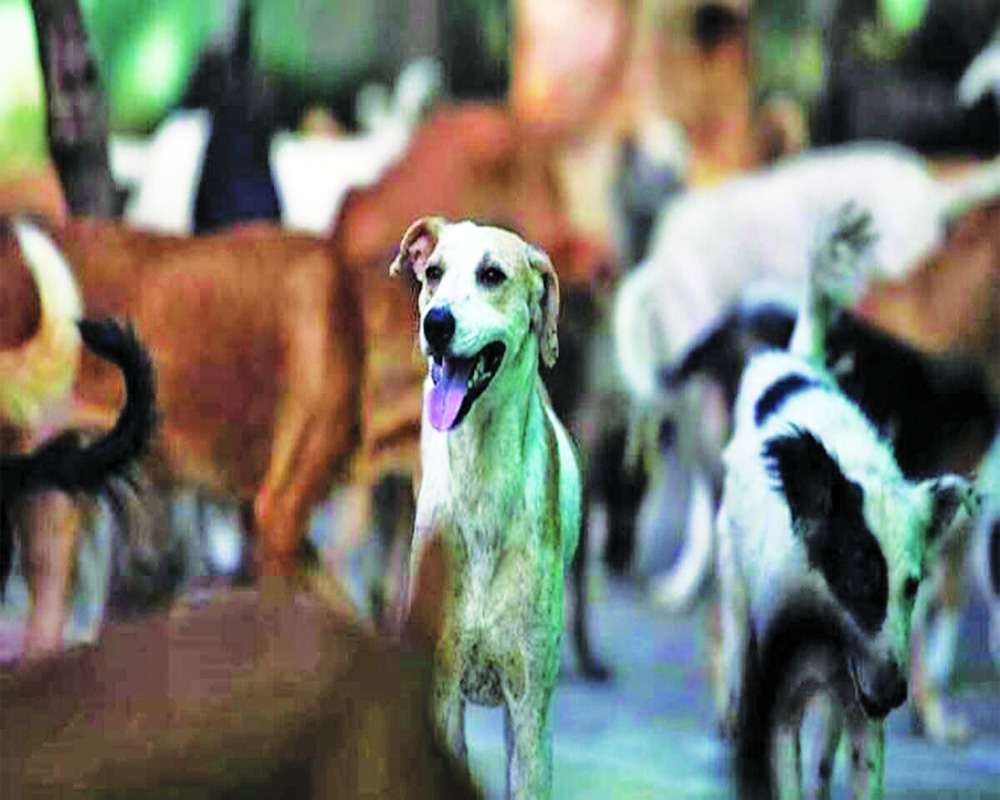One must look at the context for answers. To curb this menace, we must look at the root cause of the problem
Periodic furores over street dogs biting humans raise the question of whether they are innately ferocious and a menace to people. Konrad Lorenz (1903-1989) wrote in Man Meets Dog, "The whole charm of the dog lies in the depth of the friendship and the strength of the spiritual ties with which he has bound himself to man.” Lorenz should know. An Austrian zoologist, ethnologist and ornithologist, and recipient of the 1973 Nobel Prize in Physiology or Medicine along with Nikolaas Tinbergen and Karl Von Frisch, he is regarded as one of the founders of modern ethnology as well as the study of animal behaviour.
There have been innumerable instances of dogs dying or risking death to save humans. JN Gupta, a member of the Indian Civil Service, was commissioner of the Burdwan division in Bengal in the early 1920s. His official residence was at a place called Chinsurah on the Ganges, in which he bathed every day. One evening, a crocodile moved to attack him. While the others watched in horror from the shore, a stray dog, whom he fed occasionally, jumped on the head of the crocodile. This disoriented the latter so completely that Gupta could wade ashore, where the stray dog joined him with a leap. Thenceforward, he became a much-loved member of the Gupta family.
In Drawing the Line: Science and the Case for Animal Rights, Steven M Wise, founder and president of the United States-based Nonhuman Rights Project, and a noted scholar of jurisprudence pertaining to animal issues, cited the instance of the primatologist, Roger Fout’s dog, Brownie, diving under the family’s backing pick-up truck which was about to hit his nine-year-old brother Ed. He quotes Fout, who was then four years old, as writing subsequently that not a family member “doubted for a while that Brownie had sacrificed her own life to save my brother.”
Dogs instinctively protect children and babies. On 25 May 1996, the Bengali daily, Aajkaal, carried on its front page a report, by Pinaki Majumdar, along with a photograph by Tapan Mukherjee, of three stray dogs guarding an abandoned new-born baby—a girl--near a dustbin in a Kolkata street. They remained there from May 23 night to May 24 morning when they followed her to a local police station to which she was taken by some local people, returning to their own turf only after the baby was taken to a home. They had not even gone to look for food in the interim.
In Tumkur, Karnataka, three dogs saved the life of a newborn baby abandoned by its mother in the Devarayanadurga reserved forest. According to a report in the Bangalore edition of The New Indian Express of March 10, 2007, fearing social ostracization, the mother, a young girl made pregnant by a forest department employee who subsequently refused to marry her, went into the forest with a person and delivered the baby. She and the person then came away but three dogs from the village, who had accompanied them into the forest, stayed back guarding the baby. The next morning, their barks attracted the attention of a man who had gone into the forest and who, bringing the baby back to the village, returned it to the mother after finding her. The episode ended happily. The villagers patted the dogs profusely and resolved to get the girl married to the man who had made her pregnant.
These are just a few examples from a long narrative of warm dog-human ties that date back to the later stone age or the Neolithic Age, which began around 10,000 BCE when, according to Lorenz in Man Meets Dog, the first human settlements came up. Dogs had already become domesticated by then. The period since then has witnessed the evolution of a relationship that has led canines to be called “man’s best friend.”
One has to look for the causes of street dogs biting humans in the circumstances in which these occur. While a growing number of street dogs have referral homes or individuals or animal welfare organisations feeding and caring for them, the overwhelming majority search for food near restaurants, roadside food stalls, shops, homes and dustbins. They are shooed off, beaten with sticks and/or stoned at most places, leaving them hungry, injured and resentful. Again, when bitches litter, puppies are often killed or taken away and abandoned somewhere else by people who don’t want them around. Bitches react, sometimes by biting. Besides, they tend to become aggressive not only towards their tormentors but humans as a species. Hence, cases of attack on people who have not harmed them in any way and pre-emptive attacks to prevent harm to puppies.
The ultimate solution is a vigorous implementation of the canine birth control programme which would significantly reduce street dog populations and, consequently, the scope for conflictual situations arising between them and humans. In the interim, feeding and caring for street dogs should be encouraged as well-fed and contented canines are less likely to be aggressive than hungry and angry ones. Also, the feeders and carers can play a most useful role in catching street dogs, which would not run away from them, for the canine birth control programme.
(The author is Consulting Editor, The Pioneer. The views expressed are personal)


























